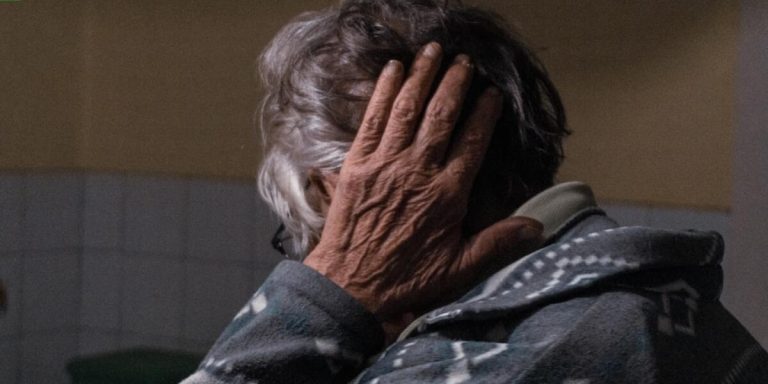What Causes Hair Loss: Shedding Light on the Underlying Issues
Uncovering what causes hair loss can often feel like trying to solve a complex puzzle. With so many potential triggers, ranging from hormonal changes to dietary deficiencies and stress levels, isolating the precise cause for individual cases requires an informed look at several different factors.
This post aims to shed light on the underlying issues that could be responsible for your thinning tresses or receding hairline. Here we delve deep into understanding various risks and medical conditions, lifestyle decisions and genetic predispositions – all of which play significant roles in contributing towards progressive hair loss.
Did you know?
Iron deficiency, a leading cause of anemia worldwide, is little known as one of the main culprits behind unexplained hair loss in both men and women.
Understanding the Role of Genetics in Hair Loss
Understanding the role of genetics in hair loss is essential when exploring causes behind this common problem. Genetics, often overlooked, plays a substantial part in determining whether you’ll experience alopecia or not. It’s more than just looking at your parents and predicting if you’re destined for thinning locks—science has delved deeper into how our DNA influences our hair health.
Genes from both mother and father contribute to the likelihood of experiencing hair loss later in life; however, it’s heavily influenced by your maternal side: more specifically, on an X chromosome that men inherit from their mothers. Hair follicles are genetically programmed to either be susceptible or resistant to balding as they contain receptors for dihydrotestosterone (DHT), which triggers baldness when there’s too much present within those predisposed follicles.
However, don’t assume that hereditary-patterned baldness is inevitable even if many family members have experienced it—it doesn’t always follow generational lines predictably due to genetic variation and other environmental factors involved. This means multiple genes—not merely one—are likely controlling this trait along with hormonal changes as age progresses creating complex interplay between nature vs nurture influencing overall scalp health leading towards potential hair thinning over time.
The Science Behind Hereditary Alopecia
Alopecia is scientifically defined as an abnormal type of hair loss that can occur anywhere on your body where hair grows. One prominent form, called Androgenetic Alopecia (AGA), also known as male or female pattern baldness, has a significant genetic component.
The root cause of AGA lies in Dihydrotestosterone (DHT), a derivative of testosterone produced naturally by our bodies. In individuals susceptible to AGA due to their genetic makeup, high levels of DHT attach themselves to the scalp’s follicles causing them to shrink over time and eventually stop producing new hairs.
Studies conducted have demonstrated how genes inherited from both parents play pivotal roles in determining whether you’ll lose your locks earlier than usual or not.
In 2023 alone, researchers at renowned research institutes worldwide found several more specific susceptibility loci associated with common forms of balding – validating previous beliefs that this condition isn’t tied up merely with maternal lineage but rather influenced by multiple familial genes from both sides.
Heredity combined with age makes for an overwhelmingly powerful force against which even top-tier treatments and procedures struggle significantly.
Identifying Genetic Markers for Baldness
The investigation starts with a look at your family tree. Notice any pattern? Does it appear like every other generation loses their locks prematurely?
If so, you might be experiencing inherited pattern baldness or Androgenic alopecia—it’s not simply about getting older.
Research suggests multiple genes scattered across our DNA contribute to this hereditary form of hair loss; however, one particular suspect stands out: gene AR located on the X chromosome we inherit from mothers—a primary reason why men tend to lose their hairs more often than women do.
But wait, even if there are no visible signs of early-age balding in your maternal lineage—it doesn’t mean you’re off the hook! Newer research has also identified numerous additional candidates for what causes hair loss on non-sex chromosomes—meaning they can come from either parent!
However daunting these revelations may sound; remember knowledge equates power. Just because you’ve found potential malefactors embedded within your genome doesn’t signal an end-all verdict—an imminent doom towards becoming follicularly challenged!
Modern science allows us remarkable intervention abilities too – through practices like therapy targeting DHT (dihydrotestosterone) hormone responsible for shrinking those vital follicles leading to thinned-out scalp vistas over time.
Hormonal Imbalances and Their Impact on Hair Health
Hormonal imbalances often sneak up on us, affecting our health and the vitality and strength of our hair. Today’s fast-paced lifestyle often brings stress that can disturb hormone balance, leading to hair loss in both men and women. Imbalanced hormones or sudden changes in their levels can alter vital bodily functions, resulting in thinning or shedding of hair.
During pregnancy, postpartum periods, or with polycystic ovary syndrome (PCOS), women can experience excessive hair loss due to hormonal changes. Estrogen promotes hair growth but decreases drastically after childbirth, resulting in increased shedding and a noticeable loss of volume.
Men with male pattern baldness may have a sensitivity to dihydrotestosterone (DHT), which shrinks the follicles and diminishes their ability to support strong hair over time. Evidence supports this condition’s link to DHT sensitivity.
Medical advancements today hold the potential to control biological processes effectively. To leverage this for your specific case, understanding the cause is crucial before exploring treatment options available from 2023. By doing so, you can restore balance with strategies tailored to your unique hormonal makeup. You should focus on addressing the root cause of the issue instead of just relieving superficial symptoms with creams that offer only temporary relief.
Thyroid Disorders as a Culprit for Thinning Tresses
Thyroid disorders are a significant factor when wondering “what causes hair loss.” They have been identified as potential culprits that could lead to thinning tresses. These disorders can either be hyperthyroidism (an overactive thyroid) or hypothyroidism (an underactive thyroid). Both conditions impact your hormone levels, contributing significantly to disrupting the natural growth and rest cycle of hair follicles.
A common symptom evident in both these thyroid issues is hair loss. The overly active or sluggish functioning of the thyroid gland alters the body’s hormonal balance. This imbalance messes with many bodily functions – one being healthy hair growth and regeneration.
Folks suffering from hypothyroidism usually experience dry, brittle hairs which subsequently break off from scalp easily resulting in noticeable thinness across their head. Contrarily, people plagued by hyperthyroidism may notice increased speediness at which their hairs fall out – often leading to striking bald patches.
Moreover, medications prescribed for treating these conditions contribute vastly towards shedding strands too! It presents quite a predicament: you’re trying reduce symptoms of this disorder but inadvertently encourage another issue—hair loss!
So if those locks are looking lackluster or noticeably lesser than before – consider getting your thyroid checked; it might just explain what causes hair loss for you!
The Effects of Pregnancy and Menopause on Hair Density
Pregnancy and menopause are two significant stages in a woman’s life that bring about profound hormonal changes. Often, these alterations can have dramatic effects on hair growth patterns, which may lead to considerable thinning of the hair density.
When discussing what causes hair loss during pregnancy, it is crucial to mention Telogen Effluvium (TE). This condition often occurs postpartum when estrogen levels plummet dramatically. Hair follicles get shocked into a resting phase due to this sudden change – instead of normal shedding and regrowth cycle; there will be noticeable thinning or even patches of baldness for some women.
On one hand, you would expect luscious locks given the surge in hormones propelling faster growing cycles during pregnancy itself but just like how every coin has two sides – this rapid increase hampers them from falling out leading an excess build-up only to shed once baby arrives frightening many new mothers experiencing such drastic modifications.
Menopause also plays its part as another pivotal stage where massive fluctuations arise within hormone production. With declining oestrogen and progesterone – hormones primarily responsible for promoting growth & healthy strands while inhibiting others whose function is reverse contributes significantly towards overall volume decrease.
Nutritional Deficiencies Linked to Shedding Strands
Nutritional deficiencies are a significant and often overlooked cause of hair loss. An inadequate intake of essential vitamins, minerals, and nutrients can interfere with the normal growth cycle of hair follicles leading to shedding strands. The role nutrition plays in maintaining healthy hair is much more important than many people realize.
Your body needs ample amounts of particular nutrients such as iron, protein, zinc and certain B-vitamins to support robust hair health. A deficiency in any one or several could manifest itself through thinning locks or brittle strands that fall out easily. For example, Iron plays an integral part aiding red blood cells carry oxygen throughout your body including to your scalp where it helps stimulate growth at the root level.
Thus aligning diet with nutritional requirements becomes a fundamental aspect in addressing issues like premature balding or excessive shedding caused by disturbances from within our system due to lack thereof these essentials being met adequately on regular basis for proper function thereon resulting noticeable improvements over time once corrected properly under guided supervision if not able self-correct initially.
How Iron Shortage Can Lead to Follicle Fallout
Iron is a critical nutrient your body needs in order to function optimally. One of its many roles involves supporting hair growth and health, implying that if you have an iron deficiency, it might be what causes hair loss for you.
In fact, studies reveal that there’s a significant relationship between iron deficiency and alopecia – shedding strands even before balding occurs outrightly! Hair follicle cells are amongst the fastest growing in the human body. They require an abundant supply of nutrients, including iron, to maintain their robust growth cycle.
When those supplies run low due to reasons such as poor diet or certain medical conditions like anaemia – where your blood lacks enough healthy red blood cells responsible for carrying oxygenated blood throughout your body – these fast-growing follicles may suffer first. The eventual result? Increased vulnerability towards potential damage thus increased fallout rates which could account what causes hair loss.
Moreover; ferritin (a stored form of Iron) also plays substantial role here by ensuring unhindered transfer of other vital nutrients needed by these rapidly proliferating cells ensuring healthier & stronger locks whilst simultaneously thwarting excessive strand fall-outs!
However this doesn’t imply overdosing on Iron supplements since too high dosage can equally trigger unwarranted side-effects! Instead focus should lie on balanced dietary intake comprising sufficient proportion from each necessary food-group aimed at boosting overall health along with promoting lustrous tresses minus any untimely fallout concerns!
The Importance of Protein and Vitamins for Hair Growth
When exploring what causes hair loss, it’s crucial to note the importance of proper nutrition for healthy hair growth. In particular, protein and vitamins play significant roles in maintaining your luscious locks.
Protein is a vital nutrient that acts as the building block for every cell in our body, including those responsible for promoting strong and shiny strands. A diet deficient in high-quality proteins can result in weak brittle hairs or even cause drastic shedding. Hence incorporating enough lean meats like chicken, turkey along with plant-based proteins such as lentils and tofu into your daily meals ensures you’re delivering sufficient nutrients to fortify your scalp’s natural functions.
Vitamins play an essential role in various biological processes linked with optimal hair health. Let’s delve deeper into these specific micronutrients:
1) Vitamin A: This vitamin aids sebum production on the scalp acting as a natural conditioner providing moisture thus reducing breakage.
2) B-Vitamins: Among them, Biotin has been extensively studied regarding its influence on improved keratin infrastructure – an important compound making up each strand of human tress.
Conclusion
In the labyrinth of misinformation, unearthing the genuine answer to “what causes hair loss” can seem like a Herculean task. Our website is your beacon in this quest for understanding, armed with credible information and comprehensive guides.
So instead of losing sleep (and perhaps more hair) over what’s causing your receding crown, let our website be your trusted resource. Dive into other articles that will not only enlighten you on various ‘Hair Loss Causes’ but also guide you towards effective solutions. You’re just a few clicks away from having healthier and fuller tresses!







